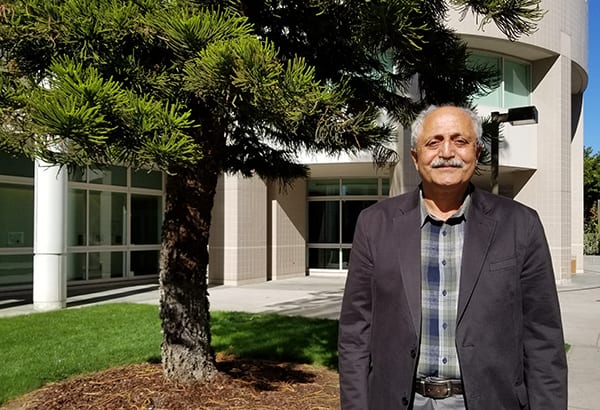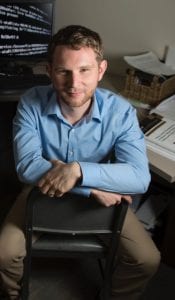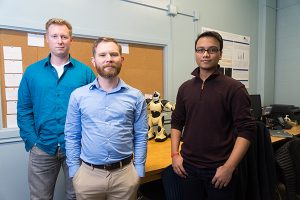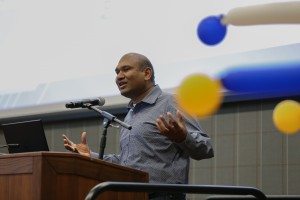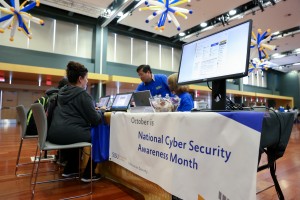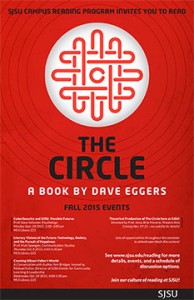By David Goll
Though HCI, or the study of human-computer interaction, is widely offered at dozens of American universities, its application in the rapidly growing field of cybersecurity is far less studied, understood or even recognized. Abbas Moallem, an adjunct professor in the Charles W. Davidson College of Engineering’s Department of Industrial and Systems Engineering, is on a mission to sound the alarms and raise the profile of the human component in cybersecurity through his undergraduate and graduate courses.
In the middle of the world’s high-tech hub, Moallem regularly surveys swaths of college students to help him research the issue of public awareness of online privacy, cybercrimes, cybersecurity and the importance of user knowledge of those issues. Silicon Valley tech companies hire more SJSU graduates than students from any other university so awareness of cybersecurity is especially pertinent to graduates.
Moallem said because there are no large-scale studies determining the level of HCI/cyber security awareness in the general public, his 180 students provide an excellent sample audience. About one-third exhibit a strong familiarity with the subject.
“It’s very hard to sample a large swath of adult consumers, so my students provide lots of information,” he said. “They’re a young, tech-savvy demographic group.”
The early results of his surveys found that despite their ease with using technology, students have a relatively low HCI/cybersecurity consciousness and don’t always practice “safe” online behavior.
“We must do more to educate students and the larger population about the importance of cybersecurity and its human element,” he said. “Most organizations, whether private companies, public agencies or universities, still approach cybersecurity from the technical side. And there are lots of technical solutions out there. Human factors is still not considered anywhere near as important as technical concerns and solutions. There’s a huge disparity in the amount of money most organizations spend on technical solutions over HCI solutions.”
Moallem recently edited a book, Human-Computer Interaction and Cybersecurity Handbook that provides insight into how understanding human factors could change how companies invest their resources in what is currently a $101 billion industry. Moallem’s book will be among the dozens of works recognized during the annual Author & Artist Awards, Nov. 2, from 6:30 to 8:30 p.m., in the Grand Reading Room on the eighth floor of the Dr. Martin Luther King, Jr. Library. The gathering is sponsored by the library, the SJSU Office of the Provost, the SJSU Office of Research and the Spartan Bookstore.
“Cybersecurity has become such a key issue and not only from a coding and technical point of view,” said Jacob Tsao, associate dean of the Extended Studies in the Charles W. Davidson College of Engineering. “The focus needs to be on the human role played in cybersecurity, but there is still so much more time and money spent on the technical level.”
